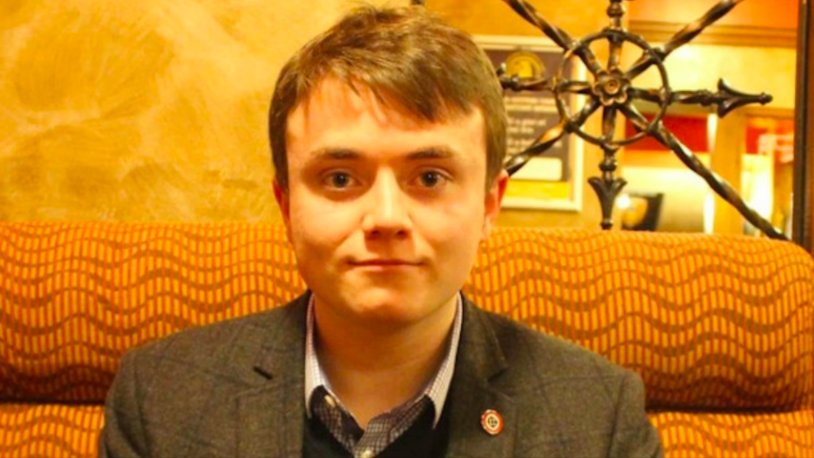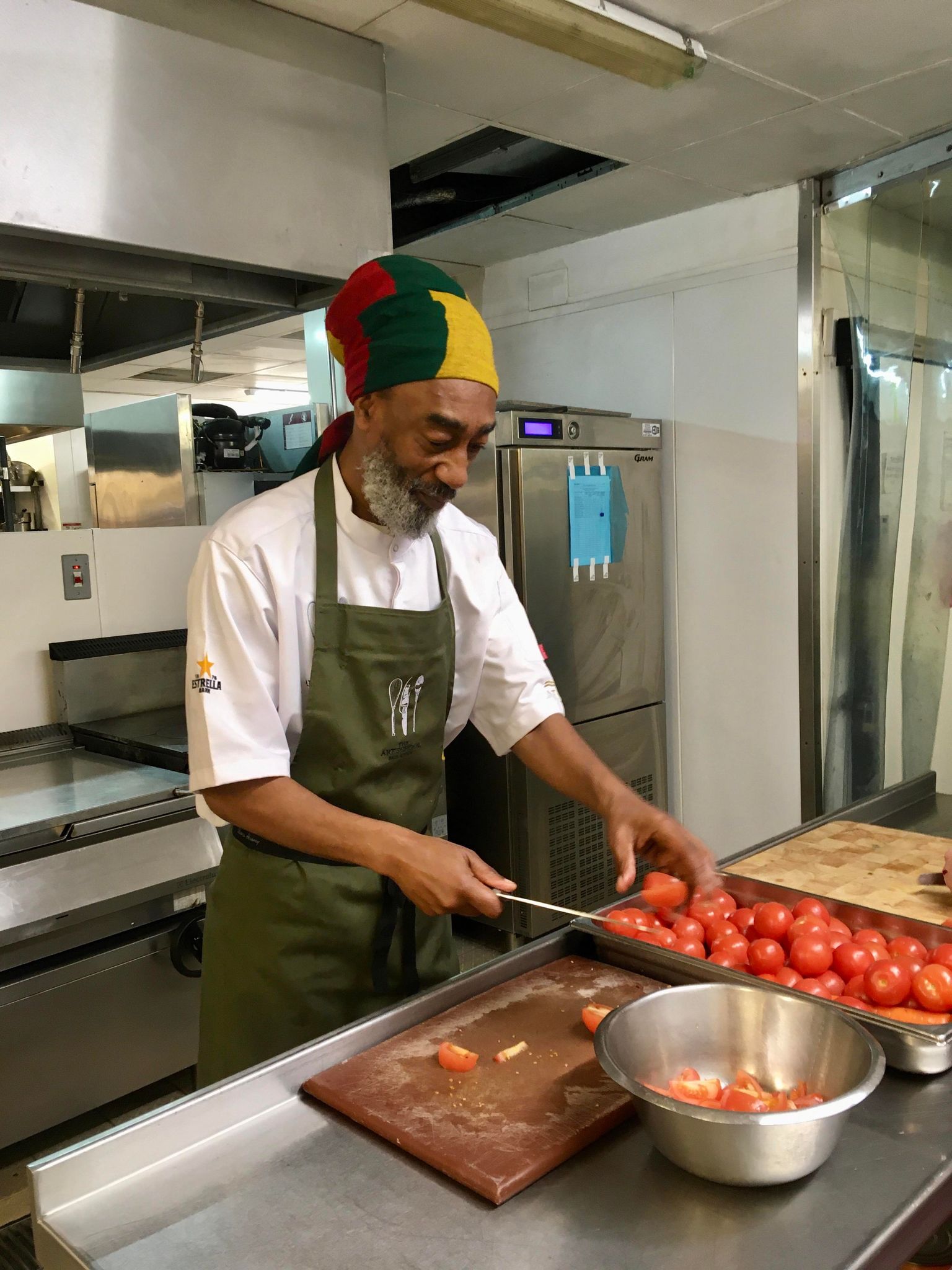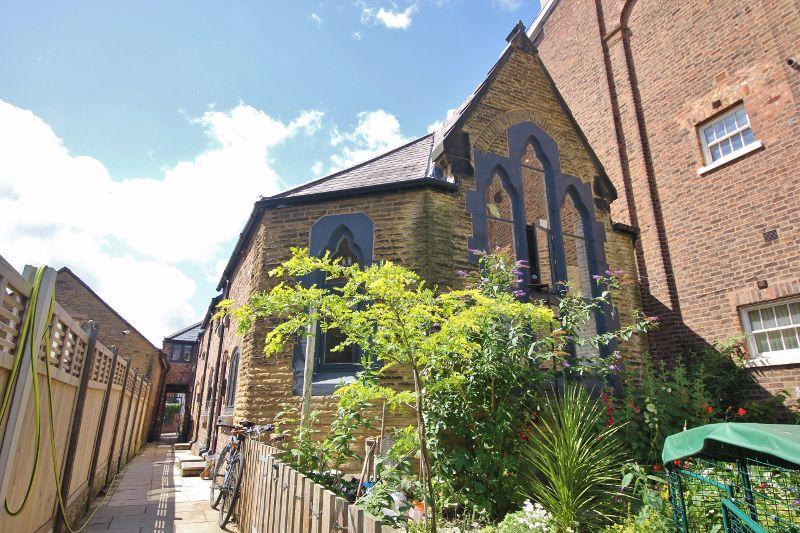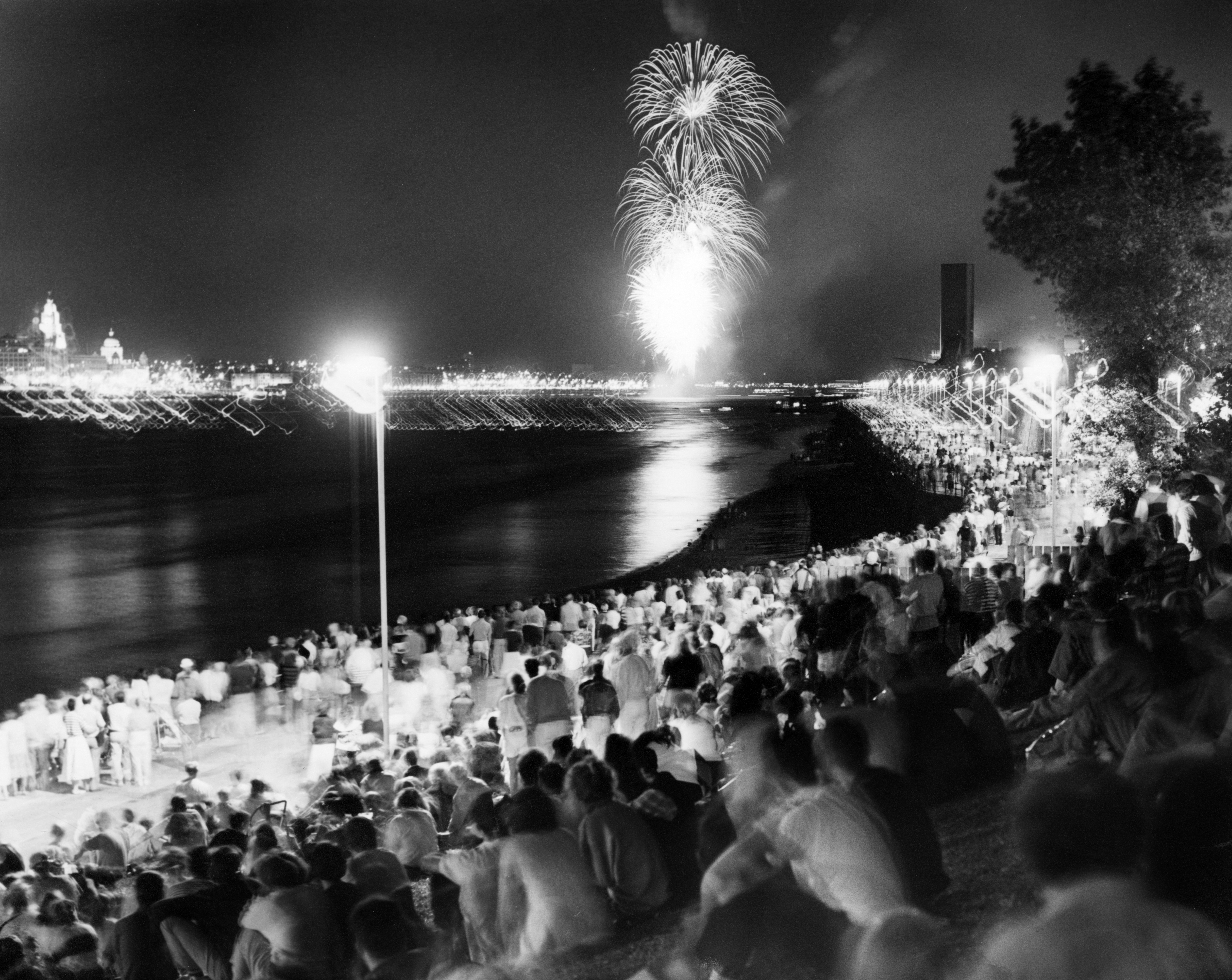Do Merseyside communities offer the 'perfect storm' for the far-right?

Plus the rest of our weekly briefing
Good morning readers — welcome to the latest weekly briefing from The Post. We have a round-up of Bonfire Night celebrations across Merseyside, a lovely church conversion for our Home of the Week, and we ask whether local communities are susceptible to right-wing extremism…
It’s now just a week until we start publishing on a full schedule. You’ll be able to join us as paying members to get two extra members-only newsletters each week and take part in our members-only community discussions and events. We hope as many of you as possible will become early patrons of this new approach to local news on Merseyside.
In case you missed it, our weekend read by Harry Shukman was about a network of birdwatchers tracking a migration of sea ducks from Liverpool Bay. Many thanks for all your kind words and for sharing it with friends and family. You can read that piece here.
What a lovely, lovely weekend read ❤️
— Borislava 'hell on wheels' Todorova ♥️ (@bdtodorova) 12:12 PM ∙ Oct 31, 2021
From Liverpool Bay, a flock of mysterious sea birds disappears into the night , by @liverpoolpost
This week’s weather

Covid-19 update
Cases: The case rate for Liverpool City Region is 366.8, down 10.4% from the previous week, compared to England’s 415.5, down 14.7%. Case rates were highest in Halton, around 600. Infection rates were lowest in Liverpool, about 200.
Vaccinations: We still don’t have an update from the Combined Authority on vaccination figures. As of 12 October, 68.7% of people of eligible people in the Liverpool City Region have had two doses of a Covid-19 vaccine, compared with 78.5% across England. You can read our analysis of Liverpool’s vaccination gap here.
Hospitalisations: As of 19 October, there were 211 Covid-19 patients in our hospitals, up from 168 the previous week. The number of Covid-19 patients in critical care was 25, down from 30 the previous week.
The big story: How the far-right could 'exploit real fears with hatred' on Merseyside
The top line: Liverpool, Bootle, and St Helens are among the areas deemed most "at risk" from far-right extremism, according to a new report. Hope Not Hate, the anti-extremism charity, says the triple impacts of coronavirus, a low capacity to recover from economic hardship, and higher-than-average hostility to multiculturalism will create the ideal conditions for the far-right to thrive. Merseyside is home to three of the 52 areas where these conditions are most acute.
Hope Not Hate’s report says:
Our research has consistently shown how, during economically tough periods, resentments and frustrations can brew, and people look for someone to blame. When people have little hope for their own chances in life, it is much harder for them to show openness and compassion for others. And it is easier for opportunists to exploit real fears with hatred. The post-pandemic landscape therefore poses enormous challenges for community resilience, and for hope.
Why this matters: The far-right poses the fastest growing terrorist threat to the UK, according to counter-terrorism police. Ken McCallum, the head of MI5, has also warned that 10 out of 29 terrorist plots thwarted recently had a far-right link.

Some background: In 2017, members of a banned terrorist organisation called National Action planned the murder of an MP from the Friar Penketh pub in Warrington. But as a fascinating New Yorker article on the group described, far-right extremists are not always blessed with recruitment skills. Here’s how one event in Merseyside went, according to a former member named Robbie Mullen:
At one rally, in St. Helens — a town whose population is overwhelmingly “white British” and Christian — one member with a megaphone had shouted at passersby, “Your enemy is the Jew!” Mullen told me, “People in St. Helens were like, ‘What’s a Jew?’”
What we’ve seen: One interesting detail from Hope Not Hate's report concerns the role of conspiracy theories in drawing individuals into the far-right. They can start with fanciful ideas about shadowy elites running the country, the charity explains, then graduate onto violent antisemitic beliefs. We noticed the crossover between anti-vaccine conspiracies and far-right ideas during our recent investigation into activists harassing headteachers on Merseyside.
At the centre of our article was a group on the Telegram app called Liverpool’s People’s Resistance UK, which boasted about giving one headteacher a “nervous breakdown” after hectoring her for giving Covid jabs to pupils. One video shared on this group (which emerged after we published our story) is an archive clip of Adolf Hitler railing against Jews. Conspiratorial links from the Telegram channel of Tommy Robinson, the far-right activist, appear regularly. There are also fear-mongering posts about migrants crossing the English Channel and videos warning of an “Asian invasion” into the US.
- We also saw comments referring to the antisemitic conspiracies that George Soros, the Jewish financier, and the Rothschild family, are plotting to replace white Europeans with African and Middle Eastern immigrants.
- Most common are posts referring to the QAnon conspiracy, which believes a Satanic cabal of cannibalistic paedophiles controls the government. It has been implicated in a number of terrorist attacks in the US.
The bottom line: Hope Not Hate says their research indicates that deprived white British communities are most likely to be sucked in by online conspiracies, perhaps spurred by “a lack of civic infrastructure and lower trust in institutions – alongside a feeling of resentment or loss”. For Merseyside groups like Liverpool’s People’s Resistance UK, it's not just about lower trust in institutions — it’s about action. “Everyone needs to be an activist now,” says the group, “standing back and watching while everything unfolds will not help our children. People power wins all the time."
Other Merseyside news in brief
Education | The gap between black and white school leavers from Merseyside gaining places at top universities is beginning to close, according to a new report from the Department of Education. In the 2019/20 academic year, 10.7% of black school leavers went to top universities, compared with 10.9% of white school leavers from the area. Nearly 60% of black school leavers from Merseyside went to university in the same year, compared with 56.5% the previous year. Read more.
Afghan meal | A welcome meal for more than 300 Afghan refugees staying in a hotel in Liverpool took place on Sunday, organised by the Liverpool Afghan Resettlement Group. Chefs cooked traditional Afghan meals to “give the Afghan newcomers the warmest Liverpudlian welcome” and a “little taste of home” as they settle into the city. Read more.

Racism claims | A Liverpudlian bus driver living in Scotland has lost his case against his employer, where he claimed he was subject to racism on account of his accent. A tribunal heard that Antony Ryan was told to “calm down, calm down” in the style of Harry Enfield by his boss and, reeling from the incident, took unauthorised time off work which led to his dismissal. The employment judge ruled: “I do not consider that simply because that city is based in England that Mr Ryan was being mocked for being English and so mocked on account of his national origin.” Read more.
Delivery | Leon Rossiter, a Liverpool digital entrepreneur, has secured a £700k investment from the Metro Mayor for a food delivery service to rival Deliveroo which he claims will be 50% cheaper and will offer kickstarter grants to restaurants, LBN reports. “For the past three years Mr Rossiter has also been an independent member of a 12-strong advisory investment panel that assesses requests for funding made to the Liverpool City Region Combined Authority’s Strategic Investment Fund (SIF).” Read more.
Botox patients | A Times investigation has revealed doctors and nurses are signing off on Botox prescriptions remotely, despite official medical guidelines requiring them to see patients in practice. Heather Hazzard, a nurse based in Liverpool, said she was happy to prescribe botox without seeing the patient. “There’s how it should be, if you’re sticking absolutely to the book. And there’s how you can tweak a little, which I’m not averse to you doing,” she said. Experts have warned this is putting patients at risk. Read more.
Encrochat arrest | A Wirral man is the latest arrest in the Encrochat hunt, the nationwide investigation looking into the use of encrypted devices by criminals. “Police found that [Gary] Mitchell, using the Encrochat handle ‘StarkIsland’, conspired with others to supply 27kgs of heroin, 17 kilos of Cocaine, 159 kilos of Cannabis and 7,000 ecstasy tablets across Merseyside.” Read more.
Go deeper: Encrochat: What it is, who was running it, and how did criminals get their encrypted phones?
Post Picks
🎨 Art club | The family art club at Lady Lever Gallery at Port Sunlight is back — there’s a session this Sunday afternoon with plenty of materials and resources for kids to get creative. Book here.
📸 Exhibition | There’s an exhibition at Open Eye Gallery this Saturday which looks moving. One Day at a Time Boys tells the story of life after addiction through documentary, film and photography, informed by those in recovery. The artists will be there to discuss their work and talk honestly about the project. More info here.
🎻 Concert | Schubert’s Final Symphony is on the bill at Liverpool Philharmonic this Thursday, alongside two other great Austrian classics, conducted by the charismatic Kevin John Edusei. Book here.
🎆 Fireworks | The traditional bonfire night fireworks at the River of Light trail may have been cancelled this year, but there’s still plenty to see across Merseyside this week. We’ve rounded up some of the best places to go:
- The Wirral: There will be firework displays all across the Wirral this Friday evening, kicking off at 6:30pm at Lingham Park, Mayer Park, Woodchurch Leuisure Centre, Mersey Park and Leasowe Adventure Playground, and Birkenhead Park and Central Park on Saturday from 6.30pm.
- Ormskirk: There’s a bonfire night party at Hurlston Lane from 5-10pm this Friday, with food stalls, fireworks and a giant bonfire. Details here.
- St Luke’s Bombed Out Church: There’s a free fireworks and bonfire night event at the Bombed out Church with mulled wine, sparklers, toffee apples, fireworks and an early screening of the kids horror film the Corpse Bride. Details here.
- Southport: If you’re after something slightly different, there’s an alternative bonfire night celebration at Pleasureland in Southport this Saturday, using the tradition of the Mexican ‘Dia de Los Muertos’ festival with samba drummers, fire eaters and a live DJ. Book tickets here.

🎞 Film festival | There’s a Chinese Film Festival at the Everyman Cinema beginning this Thursday which looks fascinating. We recommend the Friday screening of A Little Bird Reminds Me, a coming-of-age story about a boy growing up in the theatre. More info here.
🖼 Print fair | Liverpool Print Fair is back this weekend at Chapters Of Us with a variety of affordable art and handmade prints, and opportunity to “get to know the printmakers you’re buying from”. Details here.
🌿 Talk | Textile artist Maggie Pearson is giving an online talk on Thursday on how she works with nature to create her art, using natural dyes to make botanical prints on cloth and paper. It’s hosted by Sefton Park Palm House as a fundraising event to help maintain the building. Book here.
🎙 Debate | There’s an interesting debate happening tonight at the beautiful Liverpool Athenaeum. Arguing Well, hosted by Dr Piers Benn and Timandra Harkness, asks how we can learn to talk freely and disagree in polarised times. Book here.
Home of the Week

Nestled between rows of terraced houses, a 2-bedroom converted church near Princes Park is on the market for £200,000, with modern interiors and lovely vaulted ceilings.
Our favourite reads
This is a nice obituary to Sir Joe Dwyer, a Liverpudlian civil engineer who made his name at a construction site as a teen. It has moments of humour and levity and talks about his role in the city region. “With what was described as a Clint Eastwood squint and a dry Scouse accent, Dwyer was regarded as a tough adversary. ‘People have often suggested that to have got to the top of a big company I must be ruthless,’ he said. ‘I have determination, but I wouldn’t like to define that as being ruthless — but it must get close at times.’”
GPO Food Hall in L1 gets a critical review in the Guardian, where restaurant critic Grace Dent questioned the merits of the food hall dining experience as she soaked up some Eurythmics and ate sashimi. “I need to ask a very honest question here: are food halls ever a truly satisfying dining experience? I’ve no doubt they seem so on paper and in the marketing meetings, they’re fantastic for filling old, unloved but historically important spaces and they’re good news for downward-spiralling city centres. Yet in reality they’re noisy, unrelaxing and the food is often patchy, with the occasional gem hidden among the colossal choice of menus.”
Anita Singh, arts editor of The Telegraph, has waded into the public statues row to offer her take on the creative redressing of Liverpool statues. She argues the problem lies not in the quality of the debate but the quality of the aesthetic: “The designs were underwhelming, although not as bad as the cloak made for Bill Shankly. Yes, Bill Shankly — the project didn’t just take figures with dodgy colonial pasts. It also had milliner Stephen Jones making hats for statues of The Beatles.”
A feature in the Echo looks at the quiet market town of Earlestown, which was recently named as part of a 20-year regeneration plan approved by the council last week. It paints a picture of low employment opportunities and a fading social scene, with locals hoping the future will be brighter. “Back in the 70s more people came into this town than lived here, as they worked in the surrounding industries. It's gone the other way now. Everybody leaves in the morning and comes back at night as they work elsewhere. How we reverse that I don't know.”
Post from the Past
One from the archives: Crowds gather to watch fireworks off the coast of Wallasey, 1990.

Book of the week
It’s worth revisiting Unprotected by Esther Wilson, John Fay, Tony Green and Lizzie Nunnery — an emotional, verbatim 2006 play based on hundreds of interviews with Liverpool sex workers around the time Liverpool City Council proposed a managed safe zone for sex workers. It was performed at the Everyman and the Guardian called it “a very fine example of how theatre can top journalism as a means of raising debate.”
You're never safe. You know out there, it's like every car you get into, you don't know whether you gonna get out of it.
Unprotected is available to buy from the radical bookshop News from Nowhere on Bold Street.
Letters from readers
Excellent journalism from the Post since it emerged a few weeks ago, Gerry
This is a brilliant news resource for Liverpool — intelligent, well-researched and an accurate and positive reflection on the city. I would definitely recommend subscribing, The Liverpool Literary Agency
As a former Daily Post journalist I absolutely agree and wish them every success, Michael


Comments
Latest
Millions of tonnes of greenhouse gas to be piped under Liverpool Bay
The unexpected auction: A London fund manager is selling Merseyside homes from under their tenants
Northern Powerhouse Rail is back on track. We think...
The clockmaker of Wavertree
Do Merseyside communities offer the 'perfect storm' for the far-right?
Plus the rest of our weekly briefing